Sleep apnea is a common sleep disorder that affects millions of Canadians. It occurs when a person's breathing is repeatedly interrupted during sleep, leading to poor sleep quality and potential health risks. These interruptions, known as apneas, can happen several times an hour and last from a few seconds to minutes. If left untreated, sleep apnea can significantly impact daily life and long-term health.
What Causes Sleep Apnea?
There are three main types of sleep apnea:
-
Obstructive Sleep Apnea (OSA) - The most common type, caused by a physical blockage of the airway, usually when the soft tissue at the back of the throat collapses during sleep.
-
Central Sleep Apnea (CSA) - Occurs when the brain fails to send proper signals to the muscles that control breathing.
-
Complex Sleep Apnea Syndrome - A combination of both obstructive and central sleep apnea.
Factors that may increase your risk of developing sleep apnea include:
-
Being overweight or obese
-
Having a large neck circumference
-
Family history of sleep apnea
-
Smoking and alcohol use
-
Nasal congestion or allergies
-
Age (more common in adults)
Sleep Apnea Symptoms
Sleep apnea symptoms can vary but often include:
-
Loud snoring
-
Gasping or choking during sleep
-
Excessive daytime sleepiness
-
Morning headaches
-
Dry mouth or sore throat upon waking
-
Difficulty concentrating
-
Mood changes, such as irritability or depression
If you or someone you know exhibits these symptoms, it’s essential to see a healthcare professional or visit a sleep clinic for an accurate diagnosis.
How to Treat Sleep Apnea
Treating sleep apnea is crucial to improving your quality of life and reducing health risks like heart disease and stroke. The most common and effective treatment for obstructive sleep apnea is Continuous Positive Airway Pressure (CPAP) therapy.
CPAP Machines
CPAP machines work by delivering a steady stream of air through a mask to keep the airway open during sleep. Here are some of the best CPAP machines to consider:
-
ResMed AirSense 10 AutoSet - Known for its comfort and advanced data tracking features.
-
Philips DreamStation Auto CPAP - Offers easy-to-use controls and quiet operation.
-
Fisher & Paykel SleepStyle - Compact and designed for home use with humidity control.
You can purchase these CPAP machines and accessories from reputable suppliers such as CPAP Supplies Canada. Be sure to consult your doctor to find the best machine for your needs.
Does Insurance Cover CPAP Machines?
Many private insurance providers in Canada offer coverage for CPAP machines and related equipment, but the specifics vary by plan and provider. To learn more about insurance coverage, visit our detailed guide: Is CPAP Covered by Insurance?
What to Do If You Suspect Sleep Apnea
If you think you might have sleep apnea, it’s important to take action right away. Follow these steps:
-
Talk to Your Doctor - Describe your symptoms and any concerns.
-
Get a Sleep Study - Your doctor may recommend a sleep study to diagnose the condition.
-
Explore Treatment Options - Depending on the diagnosis, your doctor may suggest CPAP therapy or other treatments.
-
Consider Insurance Coverage - Check your insurance policy to understand what is covered and get pre-approval if necessary.
Where to Buy CPAP Machines and Supplies
Once diagnosed, you’ll need to invest in quality CPAP equipment. CPAP Supplies Canada offers a wide range of CPAP machines, CPAP masks, and CPAP accessories to help you get a good night’s sleep. Their team can also guide you through the insurance process and help you find the most cost-effective options.
Sleep apnea is a serious condition that can impact your health and quality of life. Taking the steps to get diagnosed and treated can make a world of difference. If you’re experiencing symptoms or have been diagnosed with sleep apnea, don’t hesitate to seek professional guidance and invest in the right treatment.
Disclaimer
This article is for informational purposes only and is not a substitute for professional medical advice. Please consult your physician or a sleep clinic if you suspect you have sleep apnea or are experiencing sleep-related issues.



